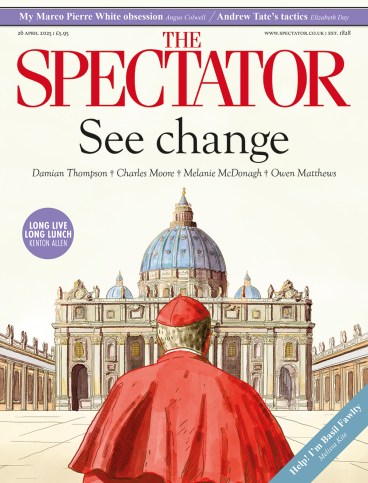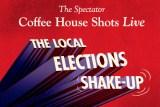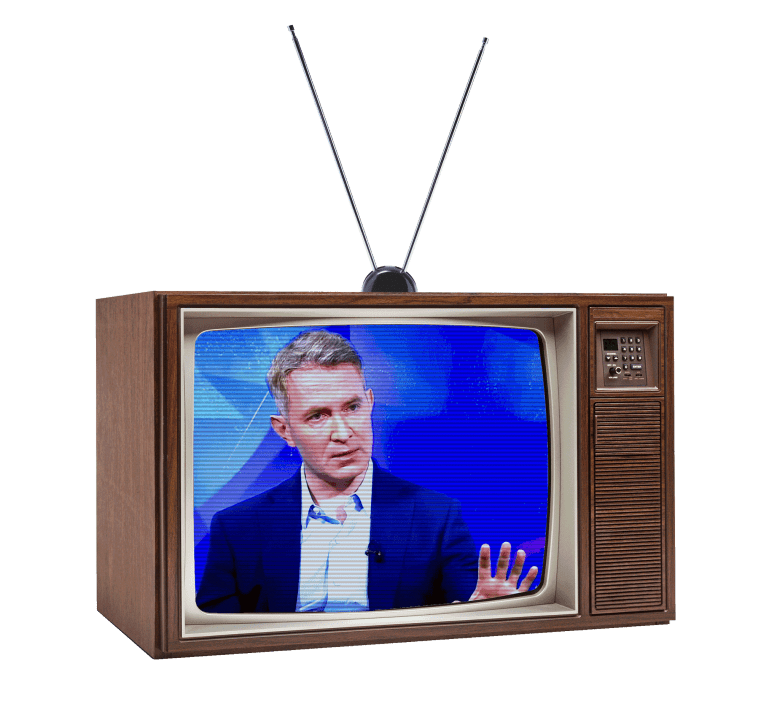
They say that death and taxes are the only certain things in this life. I would add BBC bias into that mix.
It was probably about 20 years ago that I first went on Newsnight. In those days Jeremy Paxman ruled the roost and taught me an early lesson in live television. Jeremy asked me my view and I gave it. He then turned to the other guest and duffed him up a bit. I made the mistake of smiling briefly, only for Paxman to turn on me and say something along the lines of: ‘I don’t know what you’re grinning about.’ He then proceeded to duff me up a bit too. Lesson learned.
Back then, when you left the Newsnight studio, your phone would explode. Like Question Time some decades ago, it was must-watch television. (It is hard to think of any programme on terrestrial television any more that could be described as ‘must watch’.) As the years went by, Newsnight – like so many other shows – went from ‘needn’t watch’ to ‘impossible to watch’ to ‘no one watched’. You could go on and your phone would be silent afterwards. Neither friend nor foe tuned in, and guests were left wondering about the tree falling in a forest line.
Yet in recent days I have been doing the media rounds for my latest bestseller (On Democracies and Death Cults – available wherever books are sold, since you ask), and Newsnight asked for an interview. I didn’t have a free evening, so it agreed to a pre-record. For connoisseurs of BBC shittiness, this should have been a warning sign.
On one afternoon last week, I gamely went to the BBC’s deserted headquarters and sat down opposite the perfectly affable Nick Watt. He is one of those unfortunate BBC interviewers who learned their interviewing technique from the worst, but I had a book to sell and assumed I might be asked about it. Instead Watt did that thing that BBC interviewers still think they can do – which is to treat the guest as though you are in the dock, accused of a criminal act, and they are the prosecuting barrister to whom you must answer. Personally speaking, I do not feel this pressure.
Watt started off by asking me about my relationship with Donald Trump. Funnily enough, I didn’t feel inclined to talk to him about that. Then he tried to get me on Elon Musk. I didn’t feel the need to play the BBC’s game of trying to sow division between the President and the founder of Tesla, however. Eventually I managed to get a bit of book stuff in – and then Watt went for the ‘greatest hits’ section.
Nick Watt did that thing BBC interviewers do of treating the guest as though you’re in the dock
This is the stage when a BBC interviewer has an author on and asks them how they had the temerity to say certain things in the past. The certain thing on this occasion was a quote from eight years ago in which I observed that since Islamic terrorism comes from Islam, countries that have ‘less Islam’ have less Islamic terrorism than countries that have an awful lot of the stuff.
To me, this seems a statement of the obvious. But not to Newsnight. Indeed, Watt seemed to think he could prosecute me over this observation. What he failed to realise was that the statement had been made in a short film I had created in 2017 at the request of the corporation’s bosses. This was after the Manchester Arena attack, when even the heads of BBC News seemed to be aware they might not be catching the national mood by running endless stories about locals singing the Oasis dirge ‘Don’t Look Back in Anger’. Still, I think I made my points.
Watt also tried to pretend that what I meant was ‘less Sajid Javids and less Sadiq Khans’. I pointed out that I have nothing against Javid (I left the question of my attitude towards the Mayor of London hanging). But no, I pointed out, what I am very strongly against is people who shouldn’t be in our country coming here and detonating suicide vests. And – as I feel I have said more times than any sane man needs to – if there were Quaker, Methodist or Anglican preachers calling for death and destruction from the pulpits of their respective places of worship, I would be as vexed as I am by Muslim preachers doing the same. In every other country on Earth this is a discussion which was addressed many years ago. Only at Broadcasting House are things that the French and Dutch left (for instance) have said for decades regarded as wildly outré.
Anyhow, the 20-minute interview wound down with some good verbal jousting and no small amount of criticism of the BBC from my side.
As it happens, I know one person who still watches Newsnight and he messaged me afterwards to let me know what had then transpired. The BBC had edited the interview down to significantly less than half the length – which is its right to do – and had, of course, left out most of the book stuff, which is what I was there to discuss. It had also cut out anything that made the BBC look bad.
It had then pulled its masterstroke, which was to bring out three completely unknown people – one of them possibly a former Liberal Democrat leader – to talk about the interview that had just aired.
I tend to favour balance in discussions – I especially favour it when the subject under discussion is me. On this occasion the BBC didn’t even try to pretend that it would be balanced. Instead it brought on three people who all agreed it was really quite terrible to interview me at all and that the Newsnight team should be jolly ashamed of themselves. Defenders of your present columnist there were none.
Since none of the people in question had any livelihood to speak of, I suppose I should be glad that I can provide some kind of cottage industry. Someone in this country has to be in the business of job creation.










Comments